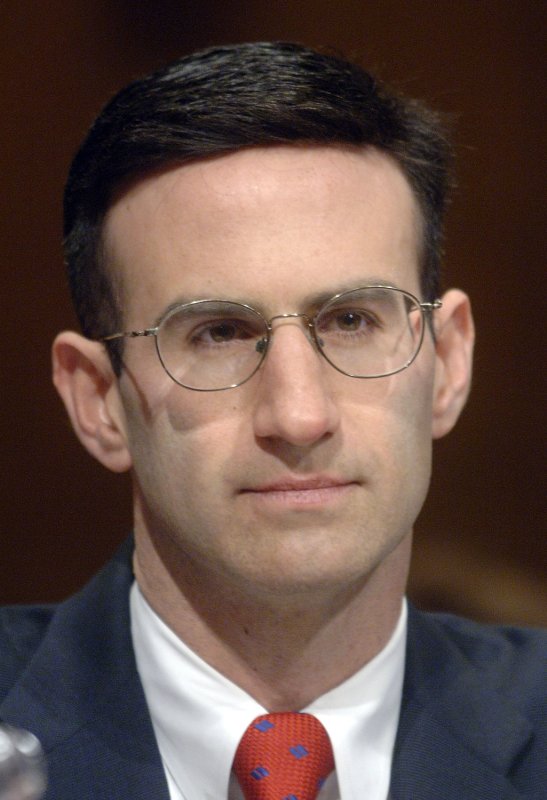Peter Orzag, shown in Jan. 25, 2007, file photo. (UPI Photo/Kevin Dietsch) |
License Photo
WASHINGTON, July 30 (UPI) -- Concerns about the federal deficit and the midterm election have slowed the annual appropriations process to a snail's pace in the U.S. Congress, observers say.
The House had passed just one of 12 annual spending bills, with action pending on the Transportation-Housing and Urban Development bill, and the Senate had yet to pass one spending measure, The Hill reported Friday.
White House Budget Director Peter Orszag said last week the federal deficit will exceed $1.4 trillion this year. Lawmakers, facing tough re-election bids this year, are fretting over projections of trillion-dollar deficits for the next decade, congressional budgeters say.
"The deficit has an impact on everything -- on jobs, on infrastructure -- everything," said Rep. Frank Wolf, R-Va., a member of the House Appropriations Committee. "It is like the taproot that everything else comes out of."
While legislators are marking up spending bills, they are divided over spending levels, especially in the Senate Appropriations Committee, observers said.
Senate Democrats set a 2011 discretionary spending cap of $1.114 trillion, about $14 billion less than President Barack Obama proposed. But Republicans want spending to come in $20 billion lower than the president's plan, roughly the same amount for 2011 that Democrats supported in their five-year budget passed last year, The Hill said.
Working toward the lower level "would send a message to the country that the Appropriations Committee is concerned about the debt that's been going up over the past several years," Sen. Lamar Alexander, R-Tenn., said Thursday during a markup session.
GOP senators already indicated they won't vote for spending measures that are not in line with the lower cap, making it unlikely the bills will find the 60 votes necessary to move forward, the Washington publication said.















